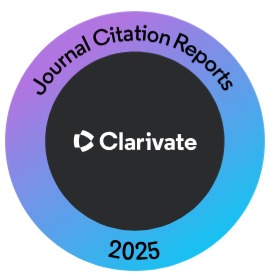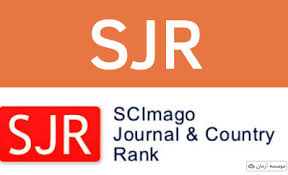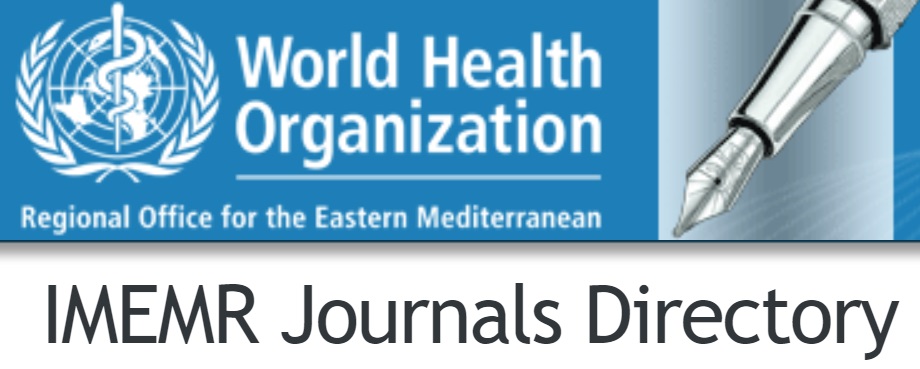Proportional Hazards Model for Predictors of Type 2 Diabetes Mellitus among the Elderly
Keywords:
Diabetes, Predictors, Elderly, Physical Activity, Dietary Habits, Family HistoryAbstract
OBJECTIVE: To find the prevalence and prognostic characteristics of type 2 diabetes mellitus (T2DM) in older adults.
METHODOLOGY: This study's quantitative observational approach utilized the Cox proportional hazards model. This study was conducted from January to June 2024 in Manado City's urban regions. Data was collected at nearby community health centres and senior care institutions to guarantee participant accessibility and convenience.
This study included older adults aged 60 or older living in urban settings. Based on power estimates, a sample size of 550 participants was chosen to guarantee adequate statistical power to identify significant correlations between predictive factors and the occurrence of T2DM. Medical examination (BMI, HbA1c and fasting plasma glucose) and structured interviews were used. The participants willing to provide informed consent were included, while exclusions included severe comorbidities and cognitive impairment. The studies were conducted using SPSS version 25.
RESULTS: In the study population, T2DM was prevalent in 45% of cases. The key prognostic factors discovered included dietary habits, degree of physical activity, body mass index, and family history of Diabetes. T2DM was found to be predicted by unhealthy eating habits (HR = 1.62, 95% CI: 1.10-2.39), low physical activity (HR = 1.54, 95% CI: 1.02-2.33), high body mass index (HR = 1.87, 95% CI: 1.25-2.80), and a family history of Diabetes (HR = 2.15, 95% CI: 1.42-3.25).
CONCLUSION: The high incidence of Diabetes in older adults makes it essential to intervene in diet, physical activity and weight control.
References
Tomic D, Shaw JE, Magliano DJ. The burden and risks of emerging complications of Diabetes mellitus. Nat Rev Endocrinol. 2022; 18(9): 525-39.
Blond MB, Færch K, Herder C, Ziegler D, Stehouwer CDA. The prediabetes conundrum: striking the balance between risk and resources. Diabetologia. 2023; 66(6): 1016-23.
Moradpour F, Rezaei S, Piroozi B, Moradi G, Moradi Y, Piri N et al. Prevalence of prediabetes, Diabetes, diabetes awareness, treatment, and its socioeconomic inequality in west of Iran. Sci Rep. 2022; 12(1): 17892.
Lawal Y, Bello F, Kaoje YS. Prediabetes Deserves More Attention: A Review. Clin Diabetes. 2020; 38(4): 328-38.
Roglic G, World Health Organization. Global report on Diabetes. 2016th ed. 2016. P. 1-86.
Liberty IA, Septadina IS, Rizqie MQ, Ananingsih ES, Hasyim H, Sitorus RJ. Predictors of Prediabetes Among Communities Without a Family History of Type 2 Diabetes Mellitus: A Case-Control Study. Cureus. 2023; 15(8): e44131. doi: 10.7759/cureus.44131.
Dilworth L, Facey A, Omoruyi F. Diabetes Mellitus and Its Metabolic Complications: The Role of Adipose Tissues. Int J Mol Sci. 2021; 22(14): 7644. doi: 10.3390/ijms22147644.
Davies MJ, Aroda VR, Collins BS, Gabbay RA, Green J, Maruthur NM et al. Management of hyperglycaemia in type 2 diabetes, 2022. A consensus report by the American Diabetes Association (ADA) and the European Association for the Study of Diabetes (EASD). Diabetologia. 2022; 45(11): 2753-2786. doi: 10.2337/dci22-0034.
Randväli M, Toomsoo T, Šteinmiller J. The Main Risk Factors in Type 2 Diabetes for Cognitive Dysfunction, Depression, and Psychosocial Problems: A Systematic Review. Diabetology. 2024; 5(1): 40-59. doi: 10.3390/diabetology5010004.
Sugandh F, Chandio M, Raveena F, Kumar L, Karishma F, Khuwaja S et al. Advances in the Management of Diabetes Mellitus: A Focus on Personalized Medicine. Cureus. 2023; 15(8): e43697. doi: 10.7759/cureus.43697.
Soeatmadji DW, Rosandi R, Saraswati MR, Sibarani RP, Tarigan WO. Clinicodemographic Profile and Outcomes of Type 2 Diabetes Mellitus in the Indonesian Cohort of DISCOVER: A 3-Year Prospective Cohort Study. J ASEAN Fed Endocr Soc. 2023; 38(1): 68-74. doi: 10.15605/jafes.038.01.10. Epub 2023 Jan 25.
Schnurr TM, Jakupovi? H, Carrasquilla GD, Ängquist L, Grarup N, Sørensen TIA et al. Obesity, unfavourable lifestyle and genetic risk of type 2 diabetes: a case-cohort study. Diabetologia. 2020; 63(7): 1324-32. doi: 10.1007/s00125-020-05140-5. Epub 2020 Apr 15.
Galicia-Garcia U, Benito-Vicente A, Jebari S, Larrea-Sebal A, Siddiqi H, Uribe KB et al. Pathophysiology of Type 2 Diabetes Mellitus. Int J Mol Sci. 2020; 21(17): 6275. doi: 10.3390/ijms21176275.
Ismail L, Materwala H, Al Kaabi J. Association of risk factors with type 2 diabetes: A systematic review. Comput Struct Biotechnol J. 2021; 19(1): 1759-85. doi: 10.1016/j.csbj.2021.03.003.
Longo M, Bellastella G, Maiorino MI, Meier JJ, Esposito K, Giugliano D. Diabetes and Aging: From Treatment Goals to Pharmacologic Therapy. Front Endocrinol (Lausanne). 2019; 10: 45. doi: 10.3389/fendo.2019.00045.
Kautzky-Willer A, Leutner M, Harreiter J. Sex differences in type 2 diabetes. Diabetologia. 2023; 66(6): 986-1002. doi: 10.1007/s00125-023-05891-x. Epub 2023 Mar 10.
Asiimwe D, Mauti GO, Kiconco R. Prevalence and Risk Factors Associated with Type 2 Diabetes in Elderly Patients Aged 45-80 Years at Kanungu District. J Diabetes Res. 2020; 2020(1): 1-5. doi: 10.1155/2020/5152146.
Ruze R, Liu T, Zou X, Song J, Chen Y, Xu R et al. Obesity and type 2 diabetes mellitus: connections in epidemiology, pathogenesis, and treatments. Front Endocrinol (Lausanne). 2023; 14: 1161521. doi: 10.3389/fendo.2023.1161521.
Wondmkun YT. Obesity, Insulin Resistance, and Type 2 Diabetes: Associations and Therapeutic Implications. Diabetes Metab Syndr Obes. 2020; 13: 3611-6. doi: 10.2147/DMSO.S275898.
Valicente VM, Peng CH, Pacheco KN, Lin L, Kielb EI, Dawoodani E et al. Ultraprocessed Foods and Obesity Risk: A Critical Review of Reported Mechanisms. Adv Nutrition. 2023; 14(4): 718-38. doi: 10.1016/j.advnut.2023.04.006. Epub 2023 Apr 18.
Malik VS, Hu FB. The role of sugar-sweetened beverages in the global epidemics of obesity and chronic diseases. Nat Rev Endocrinol. 2022; 18(4): 205-18. doi: 10.1038/s41574-021-00627-6. Epub 2022 Jan 21.
Ligthart S, Hasbani NR, Ahmadizar F, van Herpt TTW, Leening MJG, Uitterlinden AG et al. Genetic susceptibility, obesity and lifetime risk of type 2 diabetes: The ARIC study and Rotterdam Study. Diabetic Medicine. 2021; 38(10): e14639. doi: 10.1111/dme.14639. Epub 2021 Aug 2.
Galaviz KI, Narayan KMV, Lobelo F, Weber MB. Lifestyle and the Prevention of Type 2 Diabetes: A Status Report. Am J Lifestyle Med. 2018; 12(1): 4-20. doi: 10.1177/1559827615619159.
Kovács N, Shahin B, Andrade CAS, Mahrouseh N, Varga O. Lifestyle and metabolic risk factors, and diabetes mellitus prevalence in European countries from three waves of the European Health Interview Survey. Sci Rep. 2024; 14(1): 11623. doi: 10.1038/s41598-024-62122-y.
Tremblay J, Hamet P. Environmental and genetic contributions to Diabetes. Metabolism. 2019; 100S: 153952. doi: 10.1016/j.metabol.2019.153952.
Sirdah MM, Reading NS. Genetic predisposition in type 2 diabetes: A promising approach toward a personalized management of Diabetes. Clin Genet. 2020; 98(6): 525-47. doi: 10.1111/cge.13772.
Piko P, Werissa NA, Fiatal S, Sandor J, Adany R. Impact of Genetic Factors on the Age of Onset for Type 2 Diabetes Mellitus in Addition to the Conventional Risk Factors. J Pers Med. 2020; 11(1): 6. doi: 10.3390/jpm11010006.
Haverfield E V., Esplin ED, Aguilar SJ, Hatchell KE, Ormond KE, Hanson-Kahn A et al. Physician-directed genetic screening to evaluate personal risk for medically actionable disorders: a large multi-center cohort study. BMC Med. 2021; 19(1): 199. doi: 10.1186/s12916-021-01999-2.
S?kowski K, Grudzi??-S?kowska J, Pinkas J, Jankowski M. Public knowledge and awareness of diabetes mellitus, its risk factors, complications, and prevention methods among adults in Poland—A 2022 nationwide cross-sectional survey. Front Public Health. 2022; 10: 1029358. doi: 10.3389/fpubh.2022.1029358.
Tieu S, Koivusalo S, Lahti J, Engberg E, Laivuori H, Huvinen E. Genetic risk of type 2 diabetes modifies the association between lifestyle and glycemic health at 5 years postpartum among high-risk women. BMJ Open Diabetes Res Care. 2024; 12(2): e003942.
Huvinen E, Lahti J, Klemetti MM, Bergman PH, Räikkönen K, Orho-Melander M et al. Genetic risk of type 2 diabetes modifies the effects of a lifestyle intervention aimed at the prevention of gestational and postpartum Diabetes. Diabetologia. 2022; 65(8): 1291-301.
Dietrich S, Jacobs S, Zheng J, Meidtner K, Schwingshackl L, Schulze MB. Gene?lifestyle interaction on risk of type 2 diabetes: A systematic review. Obesity Reviews. 2019; 20(11): 1557-71.
Raghavan S, Jablonski K, Delahanty LM, Maruthur NM, Leong A, Franks PW, et al. Interaction of Diabetes genetic risk and successful lifestyle modification in the Diabetes Prevention Programme. Diabetes Obes Metab. 2021; 23(4): 1030-40.
Jones A, Bardram JE, Bækgaard P, Cramer-Petersen CL, Skinner T, Vrangbæk K et al. Integrated personalized diabetes management goes Europe: A multi-disciplinary approach to innovating type 2 diabetes care in Europe. Prim Care Diabetes. 2021; 15(2): 360-4.
Guan H, Tian J, Wang Y, Niu P, Zhang Y, Zhang Y et al. Advances in secondary prevention mechanisms of macrovascular complications in type 2 diabetes mellitus patients: a comprehensive review. Eur J Med Res. 2024; 29(1): 152. doi: 10.1186/s40001-024-01739-1.
Sarani Rad F, Hendawi R, Yang X, Li J. Personalized Diabetes Management with Digital Twins: A Patient-Centric Knowledge Graph Approach. J Pers Med. 2024; 14(4): 359. doi: 10.3390/jpm14040359.
Diez de los Rios de la Serna C, Fernández-Ortega P, Lluch-Canut T. Lifestyle Behavior Interventions for Preventing Cancer in Adults with Inherited Cancer Syndromes: Systematic Review. Int J Environ Res Public Health. 2022; 19(21): 14098. doi: 10.3390/ijerph192114098.
Davies MJ, Aroda VR, Collins BS, Gabbay RA, Green J, Maruthur NM et al. Management of Hyperglycemia in Type 2 Diabetes, 2022. A Consensus Report by the American Diabetes Association (ADA) and the European Association for the Study of Diabetes (EASD). Diabetes Care. 2022; 45(11): 2753-86.
Rippe JM. Lifestyle Medicine: The Health Promoting Power of Daily Habits and Practices. Am J Lifestyle Med. 2018; 12(6): 499-512.
Czupryniak L, Barkai L, Bolgarska S, Bronisz A, Broz J, Cypryk K et al. Self-Monitoring of Blood Glucose in Diabetes: From Evidence to Clinical Reality in Central and Eastern Europe—Recommendations from the International Central-Eastern European Expert Group. Diabetes Technol Ther. 2014; 16(7): 460-75.
Alowais SA, Alghamdi SS, Alsuhebany N, Alqahtani T, Alshaya AI, Almohareb SN et al. Revolutionizing healthcare: the role of artificial intelligence in clinical practice. BMC Med Educ. 2023; 23(1): 689. doi: 10.1186/s12909-023-04698-z.
Ghodeshwar GK, Dube A, Khobragade D. Impact of Lifestyle Modifications on Cardiovascular Health: A Narrative Review. Cureus. 2023; 15(7): e42616. doi: 10.7759/cureus.42616.
Budreviciute A, Damiati S, Sabir DK, Onder K, Schuller-Goetzburg P, Plakys G et al. Management and Prevention Strategies for Non-communicable Diseases (NCDs) and Their Risk Factors. Front Public Health. 2020; 8: 574111. doi: 10.3389/fpubh.2020.574111.
Yau M, Maclaren NK, Sperling MA, Feingold KR, Anawalt B, Blackman MR et al. Etiology and Pathogenesis of Diabetes Mellitus in Children and Adolescents. In: Endotext[Internet]. South Dertmouth. (MA): MDTEXT.com, Inc.; 2000, 2021 Jun 19.
Arneth B. Mechanisms of Insulin Resistance in Patients with Obesity. Endocrines. 2024; 5(2): 153-65.
Chait A, den Hartigh LJ. Adipose Tissue Distribution, Inflammation and Its Metabolic Consequences, Including Diabetes and Cardiovascular Disease. Front Cardiovasc Med. 2020; 7: 22. doi: 10.3389/fcvm.2020.00022.
Yang J, Qian F, Chavarro JE, Ley SH, Tobias DK, Yeung E et al. Modifiable risk factors and long term risk of type 2 diabetes among individuals with a history of gestational diabetes mellitus: prospective cohort study. BMJ. 2022; 378: e070312. doi: 10.1136/bmj-2022-070312.
Downloads
Published
How to Cite
Issue
Section
License
Copyright (c) 2024 Journal of Liaquat University of Medical & Health Sciences

This work is licensed under a Creative Commons Attribution-NonCommercial-ShareAlike 4.0 International License.
Submission of a manuscript to the journal implies that all authors have read and agreed to the content of the undertaking form or the Terms and Conditions.
When an article is accepted for publication, the author(s) retain the copyright and are required to grant the publisher the right of first publication and other non-exclusive publishing rights to JLUMHS.
Articles published in the Journal of Liaquat University of Medical & health sciences are open access articles under a Creative Commons Attribution-Noncommercial - Share Alike 4.0 License. This license permits use, distribution and reproduction in any medium; provided the original work is properly cited and initial publication in this journal. This is in accordance with the BOAI definition of open access. In addition to that users are allowed to remix, tweak and build upon the work non-commercially as long as appropriate credit is given and the new creations are licensed under the identical terms. Or, in certain cases it can be stated that all articles and content there in are published under creative commons license unless stated otherwise.























